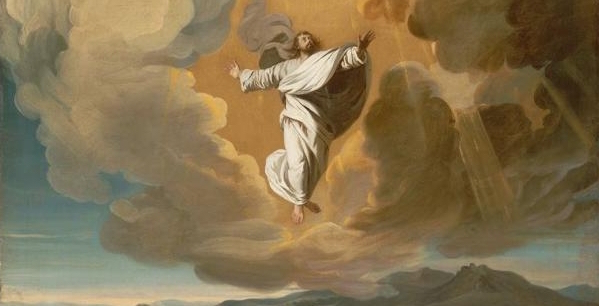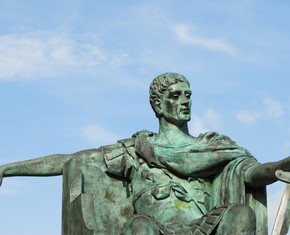The views expressed in our content reflect individual perspectives and do not represent the authoritative views of the Baha'i Faith.
The Baha’i Faith teaches progressive revelation – the continuity and unity of the religions.
Baha’is believe that the one Creator never leaves His children comfortless. Instead He reveals His guidance again and again through chosen or anointed ones—the messengers and prophets who founded the world’s great Faiths. Thus in recorded history God has manifested Himself through, amongst others, Abraham, Moses, Christ, Krishna, Buddha, Muhammed, the Bab and Baha’u’llah. Each of these prophets brought the same essential spiritual teachings, but varying social and material teachings according to the age in which he appeared.
Before their passing from this world, each one of the prophets promised to return again:
Christ: I go away, and come again unto you. – John 14:28
Moses: I will raise them up a Prophet from their brethren, like unto thee, and will put my words in his mouth … – Deuteronomy 18:18
Krishna: Know thou this, o prince, that when the world declineth in virtue and righteousness and vice and injustice mount the throne then come I the Lord and mingle as a man among men. Then by the power of my word do I re-establish virtue and righteous. Many times have I come and many times hereafter shall I come again. – Bhagavad Gita 4:7-8
In spite of the eternal truths that testify to the progressivity and consequent unity of the one religion of God, the followers of the major religions still exist in conflict with each other. They perceive, in unfamiliar ways of worship, infidelities as a consequence of certain archaic interpretations evolving over time in their own religions. This false perception lies at the root of man’s rejecting the appearance of other prophets of God.
 According to their interpretations of Old Testament prophecies, the Jews believed that the Messiah would come from an unknown place, sit upon the throne of David, fulfil the law of the prophets, rule with a scepter of iron, conquer the East and the West, initiate a reign of peace, and glorify his chosen people the Jews.
According to their interpretations of Old Testament prophecies, the Jews believed that the Messiah would come from an unknown place, sit upon the throne of David, fulfil the law of the prophets, rule with a scepter of iron, conquer the East and the West, initiate a reign of peace, and glorify his chosen people the Jews.
But Jesus came from Nazareth, a known place. He did not sit upon the throne of David, but found no place to lay his head. He broke the Sabbath Day. He carried no sword. He did not conquer the East and the West. He did not inaugurate a reign of peace, nor did He exalt the Jews. Accordingly, the Jews rejected Christ and crucified him.
However, Christ did fulfil the Messianic prophecies—not in a literal sense, but in a much deeper and more important symbolic sense. His spirit came down from heaven. His throne is an eternal one. He reformed the Law of Moses. His sword was his tongue, which conquered the East and the West. His reign of peace brought together warring tribes, sects and races, and he exalted those Jews who followed him.
While many Christians accept that Christ did not fulfil the Old Testament messianic prophecies literally, they still somehow expect that his second coming will be literally heralded by extraordinary heavenly events, including his descent from heaven on the clouds. As the Gospels and the Book of Revelation both proclaim that he shall come “like a thief in the night,” could his second coming be missed by followers of Christ who, like the Jews 2,000 years ago, misread the symbolism woven into Biblical scriptures? Could the purpose of that symbolism, as the Baha’i teachings say, be to attract “the pure and illuminated hearts?”
Know verily that the purpose underlying all these symbolic terms and abstruse allusions, which emanate from the Revealers of God’s holy Cause, hath been to test and prove the peoples of the world; that thereby the earth of the pure and illuminated hearts may be known from the perishable and barren soil. From time immemorial such hath been the way of God amidst His creatures, and to this testify the records of the sacred books. – Baha’u’llah, The Book of Certitude, p. 49.
The Baha’i writings make it clear that the hidden, symbolic meanings in the holy scriptures of every faith can reveal the true mysteries of divine knowledge:
Wert thou to cleanse the mirror of thy heart from the dust of malice, thou wouldst apprehend the meaning of the symbolic terms revealed by the all-embracing Word of God made manifest in every Dispensation, and wouldst discover the mysteries of divine knowledge. Not, however, until thou consumest with the flame of utter detachment those veils of idle learning, that are current amongst men, canst thou behold the resplendent morn of true knowledge…
The heart must needs therefore be cleansed from the idle sayings of men, and sanctified from every earthly affection, so that it may discover the hidden meaning of divine inspiration, and become the treasury of the mysteries of divine knowledge. – Ibid., pp. 68-70.
Next: Did You Miss the Return of Christ?
You May Also Like
Comments

















The words of 'Abdu'l-Baha then might be read slightly differently in that the various religions, far from being ...the discrete entities their adherents might claim, should be viewed as different facets of the same Divine purpose, separated by geography, by time and social need.
There is only one religion, and we are all part of it, even if we do not practice or have faith - it is no different to our participation in the laws of gravity and such.
The crucial element is that Baha'u'llah, in the same contect of social requirement, has made this understanding clear in a way that all manner of parallel verses in every religion have offered, but which were unsupported by the historical perspective we now have of the growth and evolution of civilization.
One additional note; if it were not for the coming of the Bab and Baha'u'llah, WW3 would be over and for those who survived it, they would be hunting their meals with spears, bows and arrows, while entertaining suspicious and malicious thoughts of anyone, outside of their assembled tribe. Cheers Brother.